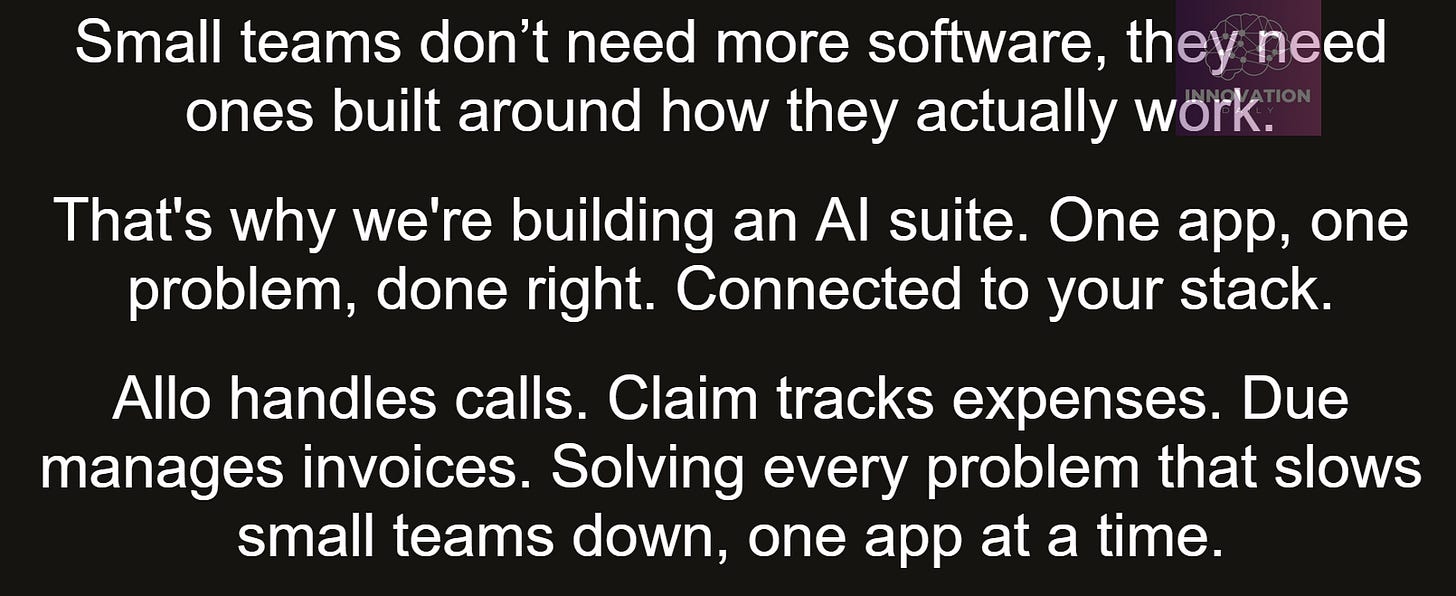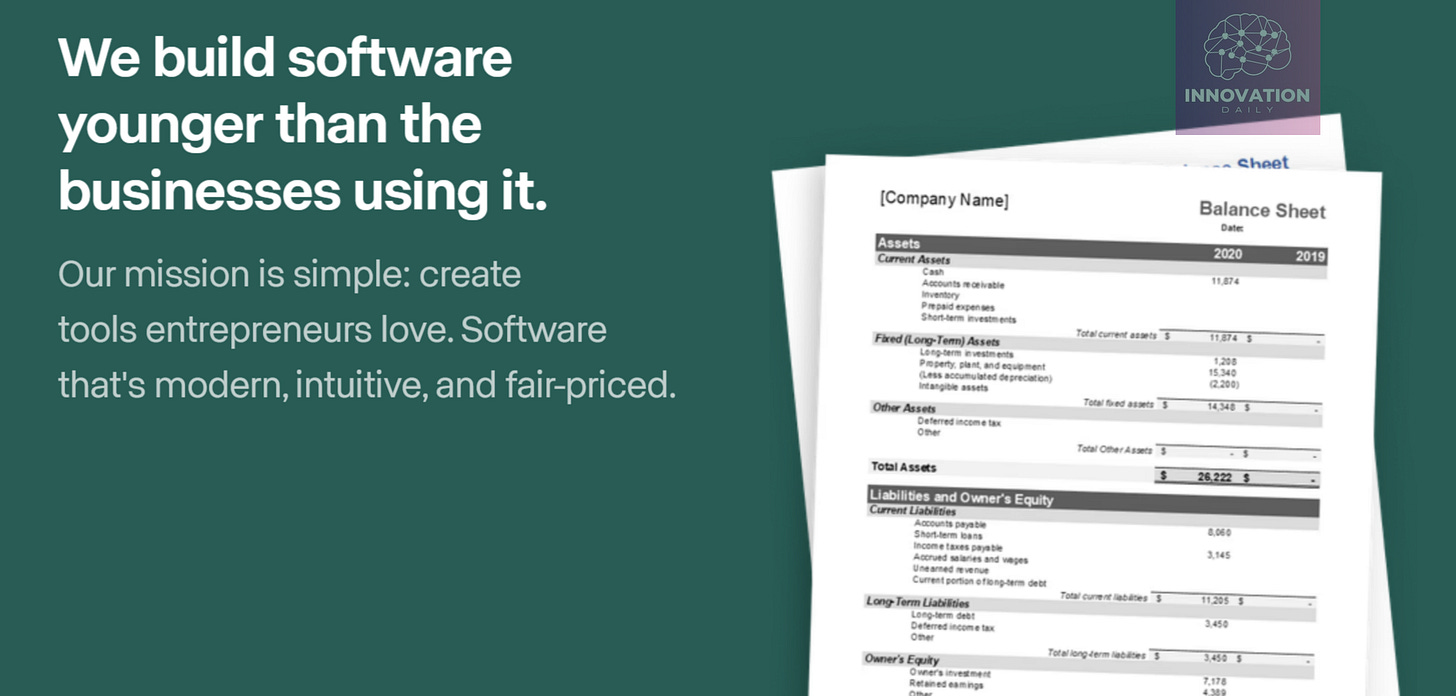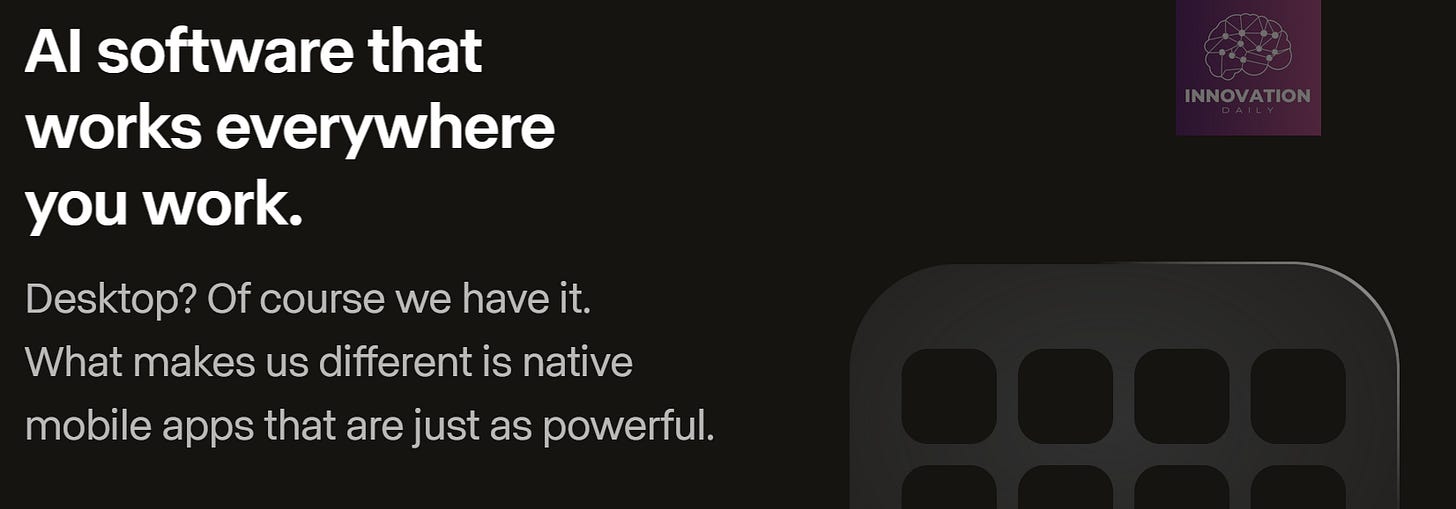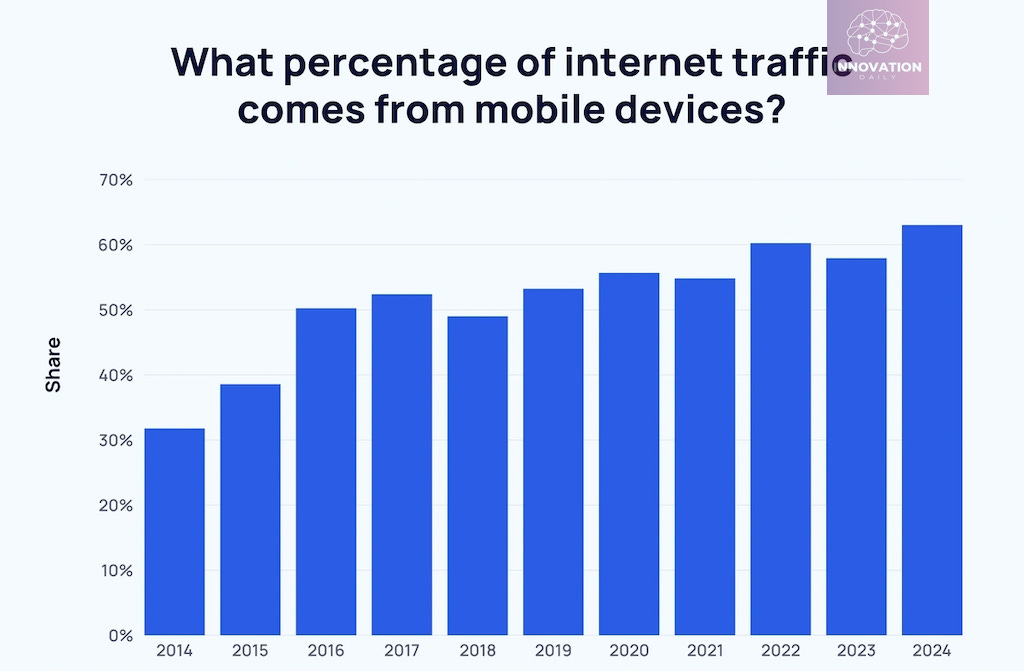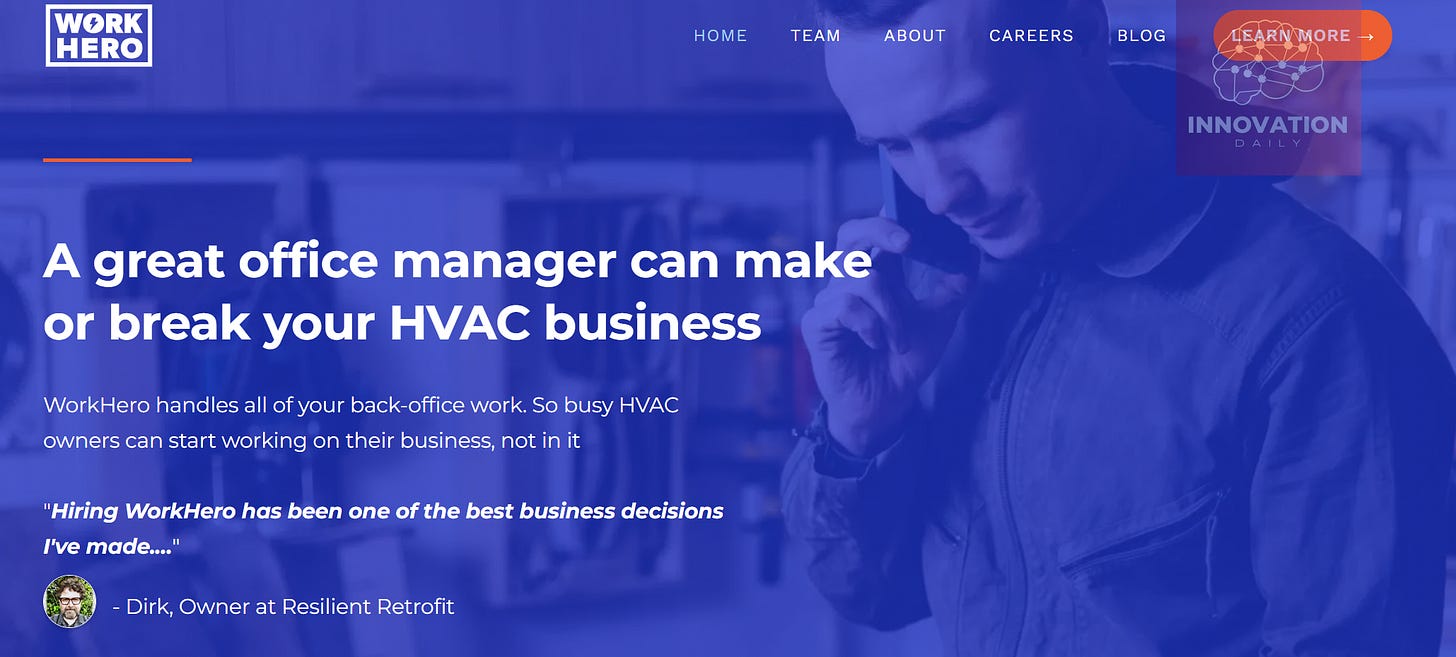From Legacy Tools to Living Apps
Today's featured startup is turning everyday business software into a new generation of mobile-native AI tools built for the realities of modern entrepreneurship
Project Overview
The Mobile-First Company is building a suite of AI-powered apps designed to replace the outdated software small businesses have relied on for decades.
Here, “AI” isn’t the centerpiece — it’s simply an added layer of intelligence that helps automate routine tasks.
For generations, small business owners have used legacy tools like Word, Excel, or 1C. The Mobile-First Company aims to change that by creating software that’s younger, smarter, and more mobile than the businesses using it.
Their core philosophy: mobile apps shouldn’t be simplified versions of desktop programs. They should be designed for the phone first — with full functionality, intuitive UX, and the power to run a business from your pocket.
Instead of one massive, all-in-one platform, the company builds separate apps for specific tasks that can seamlessly integrate and share data — forming a smooth, unified business workflow.
The flagship app, Allo, is a phone system for small teams that records and transcribes calls, drafts emails based on conversations, and updates CRM data automatically.
Another product, Due (currently in beta), helps businesses issue invoices and track payments using a deposit model, requiring partial prepayment from clients to reduce unpaid invoices. That’s a big deal — U.S. small businesses are currently owed an average of $17,500 in unpaid bills.
Upcoming apps in development will handle expense tracking, equipment maintenance, task visualization, contract signing, payroll, and online sales.
Over 5,000 businesses worldwide — from Michelin-starred restaurants and auto repair shops to coworking spaces and coding schools — already use The Mobile-First Company’s products, often replacing their legacy software entirely.
After raising €5M in seed funding last year, the startup recently secured another €10M to expand its product line.
What’s the Gist?
Investors aren’t betting on the novelty of each app — they’re betting on the vision and market.
Small businesses make up over 99% of all registered companies in most countries — from the U.S. and Germany to India, Brazil, and China (and yes, also Russia).
Meanwhile, the world has gone mobile: in 2024, 62% of all internet traffic came from smartphones. Yet, most business software still feels clunky and underpowered on mobile. The Mobile-First Company is flipping that model entirely.
It’s no surprise investors are paying attention. The combination of small business focus + mobile-first design + light AI automation is a formula built for a massive, underserved market.
A broader trend is also emerging: startups that promise to take over routine work for small business owners. Because, let’s be honest — barbers cut hair, mechanics fix cars, chefs cook. They don’t have the time or budget to manage CRMs or payment systems.
That’s why new AI-driven platforms like WorkHero (which automates office management) and Zoca (which autonomously manages customer retention for beauty salons) are raising millions. The Mobile-First Company fits perfectly into this new generation of AI copilots for small business — practical, focused, and human-centered.
Key Takeaways
Small business software is evolving into its own category — driven by the distinct pain points of time, money, and expertise.
Now, with AI, these problems can finally be tackled at scale. The future belongs to simple, friendly, mobile-first AI apps that:
Are built from scratch with AI in mind, not retrofitted onto old platforms.
Are tailored to specific industries and workflows.
Are mobile-native — designed for people who run their businesses on the go.
The message is clear: the next big wave in software won’t come from making AI smarter — it’ll come from making small business life simpler.
So… which problem would your next mobile AI app solve?
Company Info
The Mobile-First Company
Website: themobilefirstcompany.com
Latest Round: €10M 30.10.2025
Total Funding: €15M across 3 rounds





